From Syria to Sweden: Eiad´s perilous voyage across the Mediterranean
Eiad’s wife did not want him to embark on the perilous journey across the Mediterranean Sea to safety in Europe, but Eiad believed it was their only option. They had tried to build a new life in Egypt, but after two years in the country, Eiad realized he would not be able to provide a good future for his young children there. “Life wasn’t very good in Egypt”, he explains. In spite of his wife’s protests, Eiad decided to risk his life in a rickety boat sailing from Egypt to Italy. His wife and children returned to Damascus. “I was more worried about the kids”, he says. “I thought that if my life will finish, it will finish anyway – in Egypt, in the sea, wherever.”
After one and a half months of searching, he made contact with a human smuggler. The price for getting to Europe: 2,500 dollars. “We went in a group so it would be cheaper. The safest way to travel to Europe is through Turkey but it’s much more expensive. Sometimes, it can cost more than 8000 dollars per person” says Eiad. He describes the five-day boat journey to Italy with more than 300 others as “hell”- people were thrown into the boat and the smugglers did not care if they fell into the water. “If they had animals with them, they would take better care of them because they’re worth more to them”, says Eiad. Still, there was a sense of solidarity between passengers. Eiad recalls how two people almost fell off the boat in their sleep but were caught by the other passengers.
After reaching the shores of Italy, Eiad headed towards Northern Europe and arrived in Sweden on 12 October 2014. Coming here was a great relief, but life as a refugee has its daily struggles. “I miss my family” says Eiad, explaining how he had to adjust to his new life at the asylum-seeker reception centre in Farsta, Stockholm. “Starting over is not easy and leaving your country without your family… it’s hard. A lot of people who came here didn’t want to leave their lives behind in Syria. But it is impossible to give them back the same life here…They are forced to change” he says sadly.
For 36-year-old Eiad, a former shop and restaurant owner, living a slower paced life at the reception centre is a challenge. He often plays cards with some of the other people at the centre to make time pass faster and sometimes he also plays football. “But I have a problem with my back so I can’t do too much sport.” He believes life moves slower in Sweden. “In Syria, we do everything fast. A lot of Arabs find this very frustrating because we are always in a hurry” says Eiad with a laugh,
“We want things to happen faster, and we want to be reunited with our families sooner.”
Eiad says he has not started his life in Sweden yet, not without his family. “Your mind is not clear, it’s with your family, your kids, and you’re waiting to see them.” But despite the continuing concerns for his family, Eiad is hopeful for the future. “I want to finish my studies or work and study at the same time. I don’t like to sit still.” He hopes to use the skills he acquired as a restaurant owner in Syria to start a small restaurant in Sweden, serving Syrian food.
Eiad’s application for asylum has just been approved and he is waiting to be reunited with his wife and two sons, who are still in Syria. “My children are very excited about coming to Sweden”, says Eiad with a big smile. “My wife is worried because she doesn’t know anyone here and it’s strange for her. But I think she’s going to like it. She is an English teacher” he says proudly.
Page 3 of 33
-
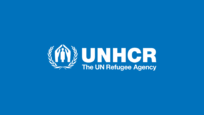
UNHCR Observations on the Finnish Government’s Proposal to introduce a border procedure
26.02.2024UNHCR’s Representation for the Nordic and Baltic Countries has submitted its observations on the Proposal to amend the Finnish Aliens Act (the Government’s proposal to the parliament to amend the Aliens Act and related laws). The Proposal seeks to introduce a border procedure to allow for fast processing of certain […]
-
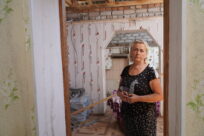
Full-scale Ukraine war enters third year, prolonging uncertainty and exile for millions of displaced
20.02.2024This is a summary of what was said by UNHCR Regional Director for Europe, Philippe Leclerc – to whom quoted text may be attributed – at today’s press briefing at the Palais des Nations in Geneva.
-
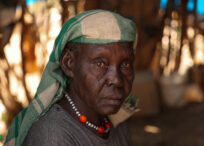
As Sudan conflict fuels epic suffering, UN launches humanitarian and refugee response plans for 2024
07.02.2024The United Nations and its partners today appealed for a combined $4.1 billion to meet the most urgent humanitarian needs of civilians in war-torn Sudan and those who have fled to neighbouring countries.
-
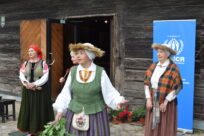
With war-affected Ukrainian refugees still in need of support, UN launches plan to respond in Latvia in 2024
05.02.2024RIGA Today, the Latvian chapter of the Regional Refugee Response Plan for the Ukrainian refugees is being launched in Riga. As we approach the two years’ mark since the full-scale invasion began, millions of Ukrainians, both in Ukraine and across the region, continue to need support. The majority of them […]
-
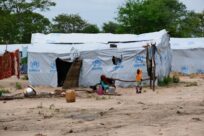
Unearmarked funding makes a difference in the lives of people living amidst neglected humanitarian crises
15.01.2024In 2023, UNHCR has been challenged by financial constraints despite ever-growing humanitarian need and forced to do more with less. Unearmarked contributions, such as those from Norway and Sweden, fund UNHCR’s vital operations in forgotten crises and enable UNHCR to plan and implement effective and sustainable humanitarian responses.
-
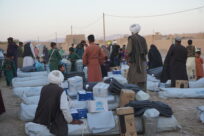
Denmark’s Humanitarian Impact on Afghanistan’s Earthquake Aftermath
21.12.2023The seismic events that occurred on 7 and 11 October, have left Afghanistan in disarray, directly impacting 250,000 people, claiming over 1,400 lives, and leaving 19,250 individuals, spanning 3,197 families, in dire need across seven districts. Denmark’s commitment to humanitarian efforts is making it possible for UNHCR, the UN Refugee Agency, to scale up the response as Afghanistan grapples with the aftermath of the two devastating earthquakes.
-

Exploring the challenges in assessing asylum claims based on religious conversion
21.12.2023In recent years, the number of asylum claims involving religious conversion has increased notably. This trend has sparked discussions among national authorities and academia, focusing on the credibility of such claims and good practices for their assessment.
-
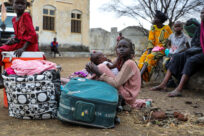
Displacement crisis in Sudan deepens as fighting spreads
19.12.2023UNHCR, the UN Refugee Agency, is concerned at the deepening forced displacement crisis in Sudan and neighbouring countries as hundreds of thousands more people flee from the latest fighting in Sudan’s central Al Jazirah State, southeast of the capital, Khartoum. We are also very concerned about reports of an escalation […]
-
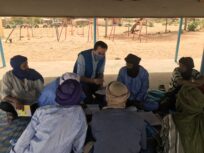
Stories from the Field: “I believe education can make a change.”
12.12.2023 -

Climate and conflict – aggregating humanitarian crises in Ethiopia
08.12.2023Ethiopia, a country hosting nearly a million refugees and recovering from a violent conflict displacing millions of people, is now facing another humanitarian emergency in the form of deadly weather.
